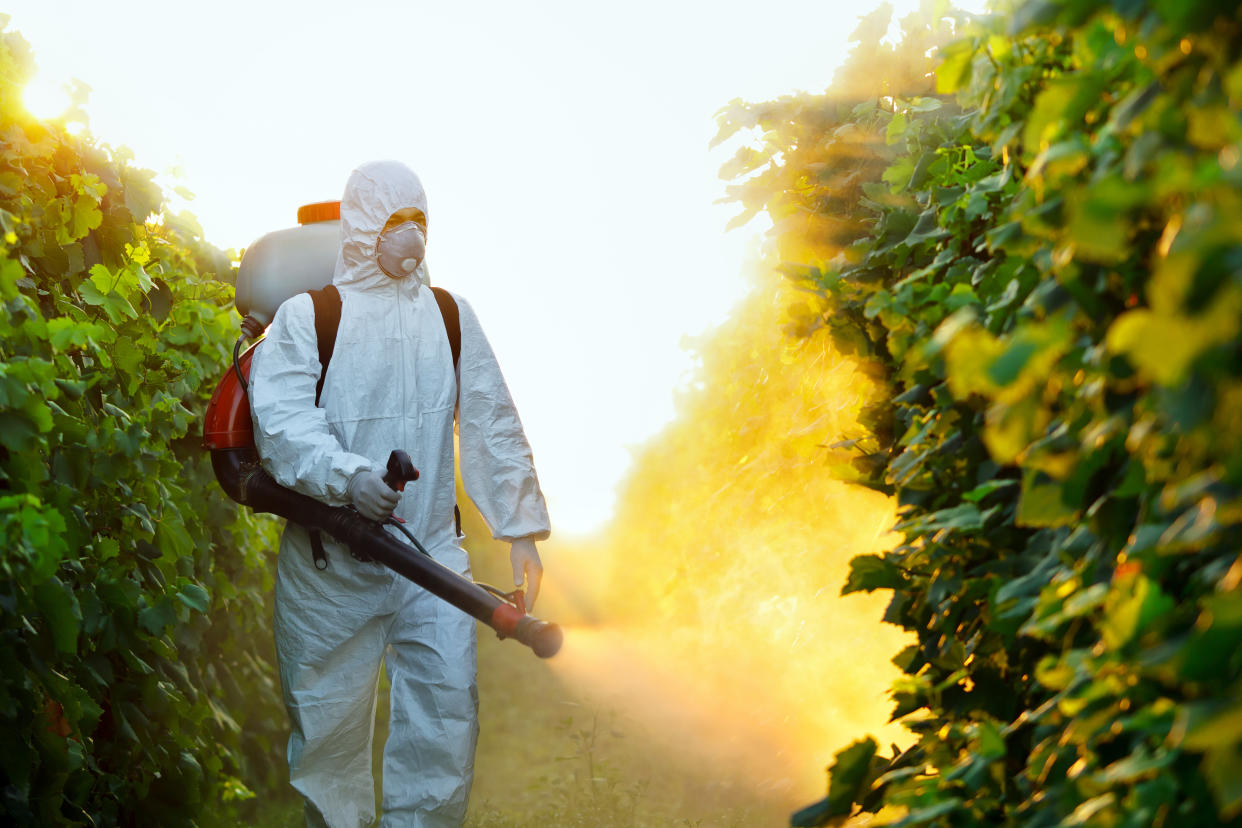Parkinson's linked to pesticide exposure in vineyard farmers

Pesticide exposure may raise the risk of Parkinson's disease in farmers, research suggests.
The progressive condition is caused by a loss of nerve cells in the part of the brain responsible for producing the chemical dopamine, which helps co-ordinate movement.
Exactly why this occurs is unclear, however, the disease is known to run in families and is increasingly being linked to environmental factors, like traffic and air pollution.
To learn more, scientists from Paris-Saclay University analysed the pesticide exposure against any Parkinson's diagnosis among farmers throughout France.
Read more: Car emissions linked to Parkinson's
In the regions where the vineyards spent the most on pesticides, farmers were 16% more likely to develop the disease.

Around 145,000 people are diagnosed with Parkinson's in the UK, with one in 37 expected to be told they have the disease in their lifetime.
In the US, nearly 1 million are living with Parkinson's, expected to rise to 1.2 million by 2030.
Read more: Parkinson's could be diagnosed via skin swab
To better understand the disease's onset, the Paris-Saclay scientists calculated the pesticide expenditure of more than 3,000 French regions in 2000.
The French National Health Insurance database then identified Parkinson's cases in farmers between 2010 and 2015.
Watch: Jeremy Paxman has Parkinson's
In vineyards specifically, a high pesticide expenditure was linked to Parkinson's onset in male farmers and those over 75.
High fungicide use, pesticides that kill fungi or their spores, was associated with the disease.
Read more: Parkinson's eliminated in mice in accidental discovery
Vineyards mainly use fungicides, while herbicides – substances that are toxic to weeds – and insecticides – toxic to insects – are also applied to cereal crops.
In France, vineyards made up just 3% of agricultural land in 2000, but accounted for 20% of all pesticides sold, of which 80% were fungicides.
Fungicides have previously been associated with Parkinson's in both real life and "toxicological" studies.
Although generally considered to be safe, farmers are exposed to "a large variety of pesticides over a long period of time", potentially causing any hazardous ingredients to build up.
"This result suggests agricultural practices and pesticides used in these vineyards may play a role in PD [Parkinson's disease] and farmers in these farms should benefit from preventive measures aiming at reducing exposure," the scientists wrote in the journal Environmental Research.
"Our study highlights the importance of considering farming type in studies on pesticides and PD and the usefulness of pesticides expenditures for exposure assessment."
Watch: Mike Tindall speaks of his father's Parkinson's



